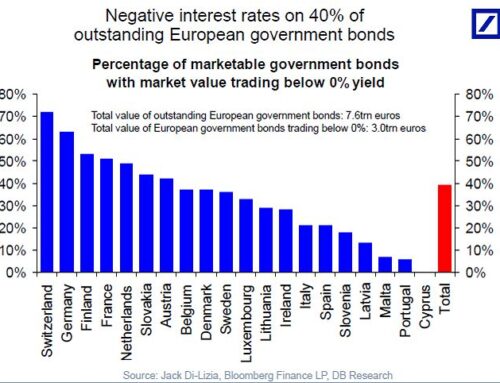What is Risk? What are the factors affecting the risk profile? How can you decide or find out on your own? Is risk good? Is your risk profile also affecting your investment habits, or is your investment habits affecting your risk profile?
The reason why I am starting so many questions is one tweet.
Sunday is about playing the Devil’s advocate!
Does only investing in SIPs bring down the actual risk taking ability of a person?— swarup mohanty (@mohanty_swarup) September 24, 2017
Very Important question in the time when we are listening to SIP and their advantages everywhere.
So let’s start with the DEFINITION of BOTH.
As per INVESTOPEDIA
Asset management is the direction of a clients cash and securities by financial services companies usually Investment Bank.
Now check risk management.
The forecasting and evaluating financial risk together with the identification of procedures to avoid or minimize their impact.
So now the question is
IS SIP RISK MANAGEMENT or ASSET MANAGEMENT.
The main question is about Risk appetite. Risk appetite is the ability to take risks while you are investing.
Here I am explaining it thoroughly.
You are a salaried person—with limited income. You don’t believe in equity and growth stories. So naturally, you love to invest in Fixed income securities or even better physical assets like gold and real estate. Concerning your income, expenditure is sufficient, like 60-70%. You don’t have liabilities like an extensive home loan as you live in Your family home. As you are covered under the Defined Benefit plan, that front is also covered.
In such a situation, if you want to invest in equity. You went to some AMC office. They will show you all their marketing material and start telling you plus points of SIP., so what is your risk appetite and Risk-taking ability, and is that making a big difference?
Here to understand SIP, we need to understand what it is SIP.
Let us assume you want to invest Rs. 10000. As you go to the mutual fund office, all their marketing people start telling you how great SIP is? you were influenced by it and decided to invest in 10 different payments STARTING from 2 Jan (1 Jan was a holiday. Numbers used hereafter are taken from Actual NSE Nifty or CNX Nifty for January to October 2017.) But as you are irritated, this person wants me to invest over time and not at once. So you invested heavily (Assume 10000) on 2 Jan.
1 Jan was a holiday. So you invested 10000 as a lump sum on 2 Jan. You earned 26.70% on that. So on that option, you are holding Rs 12670.
, But as Mutual Funds, people forced you to invest in 10 Monthly installments. First, we have 26.70%, so on 1000, you have 1267.
on 1 Feb you invest 1000. for that, you 18.90%. SO ON THAT AMOUNT, YOUR TOTAL IS 1189
ON MARCH INSTALLMENT, YOU EARNED. 15.85% SO 1000 BECOME 1158.5
In April you invest 1000. You earned 12.19%. So 1000 becomes 1121.9
May. Invested 1000. earned 11.27. 1000 become 1112.7
June. Invested 1000. earned 7.77%. 1000 become 1077.7
July. Invested 1000. Earned 7.81%. 1000 become 1078.1
August. Invested 1000. Earned 2.46%. 1000 become 1024.6
September. Invested 1000. Earned 3.90%. 1000 become 1039
October. Invested 1000. Earned 4.53%. 1000 become 1045.3
now, if you add all this, what do you find?
1267 + 1189 + 1158.9 + 1121.9 + 1112.7 +1077.7 + 1078.1 + 1024.6 +1039 + 1045.3 = 1114.2
Lump-sum is 12670. via SIP 1114.2. No doubt it is small. But the benefit is you can keep your SIP for the long term. The difference here is all due to the price I am taking. I am taking the closing price of nifty. So the trade of the whole first day of the month was gone, making a difference.
So now, let’s go to the actual question.
Does only investing in SIP BRING DOWN the ACTUAL RISK TAKING ABILITY of a person?
And I believe the people who voted in the poll thought about one invisible factor. In any case, whether SIP or Lump Sum, YOUR WHOLE INVESTED AMOUNT IS RISK. SIP ONLY HELP YOU TO AVERAGE COST of your investment. Once you invest, you are at risk.
Many things determine risk-taking ability. Age, income, leverage on your life in many ways like Future expense of children, availability of insurance, Even liquid reserve funds available, Monthly payment also affects it. SIP is a way to make cost average.
So how to increase Risk-Taking ability.
- Start Investing Early.
- Buy TERM INSURANCE. (Insurance is not an investment.)
- Buy Health insurance covering significant illnesses.
- YES. SIP can help you to invest.
- Invest through MUTUAL FUNDS. A fund manager is there only to manage your money. It helps as you cant track 50 different companies by reading their Annual Report and meeting with management.
- ETF is a good way.
- Diversify.
- Concentrate on COST like a phone call to broker, cost of extra report if any.



